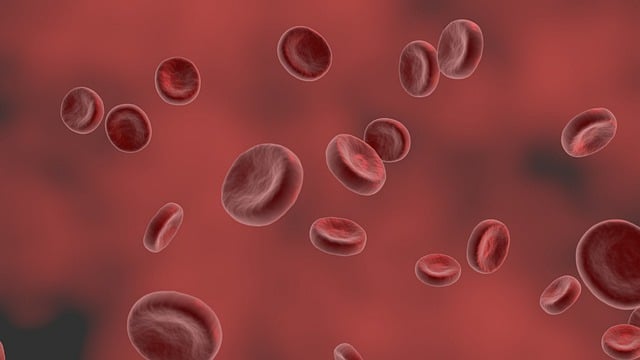Early-stage diabetes (prediabetes) is a critical period marked by elevated blood sugar without symptoms, often going undiagnosed until complications arise. Advanced diabetes blood tests, such as measuring hemoglobin A1c (HbA1c), offer comprehensive long-term blood sugar control insights, aiding in screening and managing prediabetes. These tests empower healthcare providers to make informed decisions, guide patients toward timely interventions, and prevent diabetes progression. Key tests include fasting plasma glucose (FPG), oral glucose tolerance test (OGTT), and A1C (HbA1c), along with advanced lipoprotein profiles analyzing cholesterol and triglycerides. Early detection through these tests offers significant advantages, including improved health outcomes and reduced economic burden, with future advancements promising increased accuracy and accessibility via digital health platforms.
Discover the transformative power of advanced blood tests in early-stage diabetes detection. This comprehensive guide explores the subtle symptoms and challenges often overlooked, highlighting the critical role of modern diagnostic tools. We delve into various diabetes blood tests, their benefits, and future prospects, empowering individuals to take proactive steps towards better health. Learn how these innovative screenings can revolutionize diabetes management and save lives.
- Understanding Early-Stage Diabetes: Symptoms and Challenges
- The Role of Advanced Blood Tests in Detection
- Types of Blood Tests for Diabetes Screening
- Benefits and Future Prospects of Early Diabetes Detection
Understanding Early-Stage Diabetes: Symptoms and Challenges
Early-stage diabetes, often referred to as prediabetes, is a critical period where an individual’s blood sugar levels are higher than normal but not yet in the diabetic range. This stage is characterized by subtle symptoms that might go unnoticed, making it a silent condition. Common signs include increased thirst, frequent urination, unexplained weight loss or gain, fatigue, and blurred vision. However, many people with prediabetes may not experience any symptoms at all, which is why early detection through diabetes blood tests is vital.
The challenges associated with identifying prediabetes lie in its subtle nature and the fact that it often goes undiagnosed until complications arise. Many individuals are unaware of their elevated blood sugar levels, putting them at risk for developing type 2 diabetes. Advanced blood tests specifically designed to measure hemoglobin A1c (HbA1c) levels offer a more comprehensive view of long-term blood sugar control. These tests are essential tools in screening and managing prediabetes, as they can help healthcare providers make informed decisions and guide patients toward timely interventions.
The Role of Advanced Blood Tests in Detection
In the ongoing quest to manage and prevent diabetes, advanced blood tests have emerged as a powerful tool for early-stage detection. These tests go beyond basic glucose measurements, delving into the complex biochemical landscape of the bloodstream to identify subtle changes indicative of prediabetes or early-onset diabetes. By analysing various markers such as A1C levels, insulin resistance, and specific biomarkers associated with metabolic dysfunction, healthcare professionals can now detect diabetes at its insidious stages.
This proactive approach is pivotal in improving patient outcomes, as early detection allows for timely interventions like lifestyle modifications and medication regimens. Unlike traditional diabetes blood tests that primarily focus on glucose readings, advanced tests provide a more comprehensive view, enabling healthcare providers to make accurate diagnoses and craft personalised treatment plans. As a result, individuals at risk can take control of their health, averting the progression of diabetes and its associated complications.
Types of Blood Tests for Diabetes Screening
There are several types of blood tests used for diabetes screening, each offering unique insights into an individual’s metabolic health. The most common is the fasting plasma glucose (FPG) test, which measures blood sugar levels after a period of abstinence from food and drink (typically 8 hours). Another key player is the oral glucose tolerance test (OGTT), where blood sugar is checked before and after consuming a sugary drink to assess how well the body processes glucose.
The A1C (HbA1c) test is another powerful Diabetes blood test, providing an average of blood sugar levels over the past 2-3 months. This test is especially valuable as it doesn’t require fasting and offers a long-term perspective on glycemic control. Additionally, advanced lipoprotein profiles can help identify metabolic risks by analyzing various cholesterol types and triglyceride levels, which are closely linked to diabetes and cardiovascular health.
Benefits and Future Prospects of Early Diabetes Detection
Early diabetes detection through advanced blood tests offers a multitude of benefits. It allows for timely intervention, potentially slowing or even preventing the progression to more severe stages of the disease. By identifying individuals at risk early on, healthcare providers can initiate lifestyle changes and medication regimens that can significantly improve long-term health outcomes. Additionally, these tests can help reduce the economic burden associated with diabetes management by catching the condition before it requires intensive care.
Looking ahead, the future of early diabetes detection is promising due to ongoing advancements in medical technology. More sensitive and specific blood tests are being developed, leveraging cutting-edge techniques like artificial intelligence and machine learning to analyze complex biomarkers. These innovations aim to improve accuracy and make screening more accessible, potentially integrating into routine check-ups. Moreover, integration with digital health platforms could facilitate continuous monitoring and early alert systems, empowering individuals to take proactive steps towards maintaining optimal glycemic control.
Early-stage diabetes detection through advanced blood tests offers a promising avenue for managing this condition. By identifying subtle changes in blood sugar levels, these tests can help prevent complications and improve long-term health outcomes. As research progresses, the development of more accurate and accessible diabetes blood tests will be crucial in saving lives and reducing the global burden of this disease.
